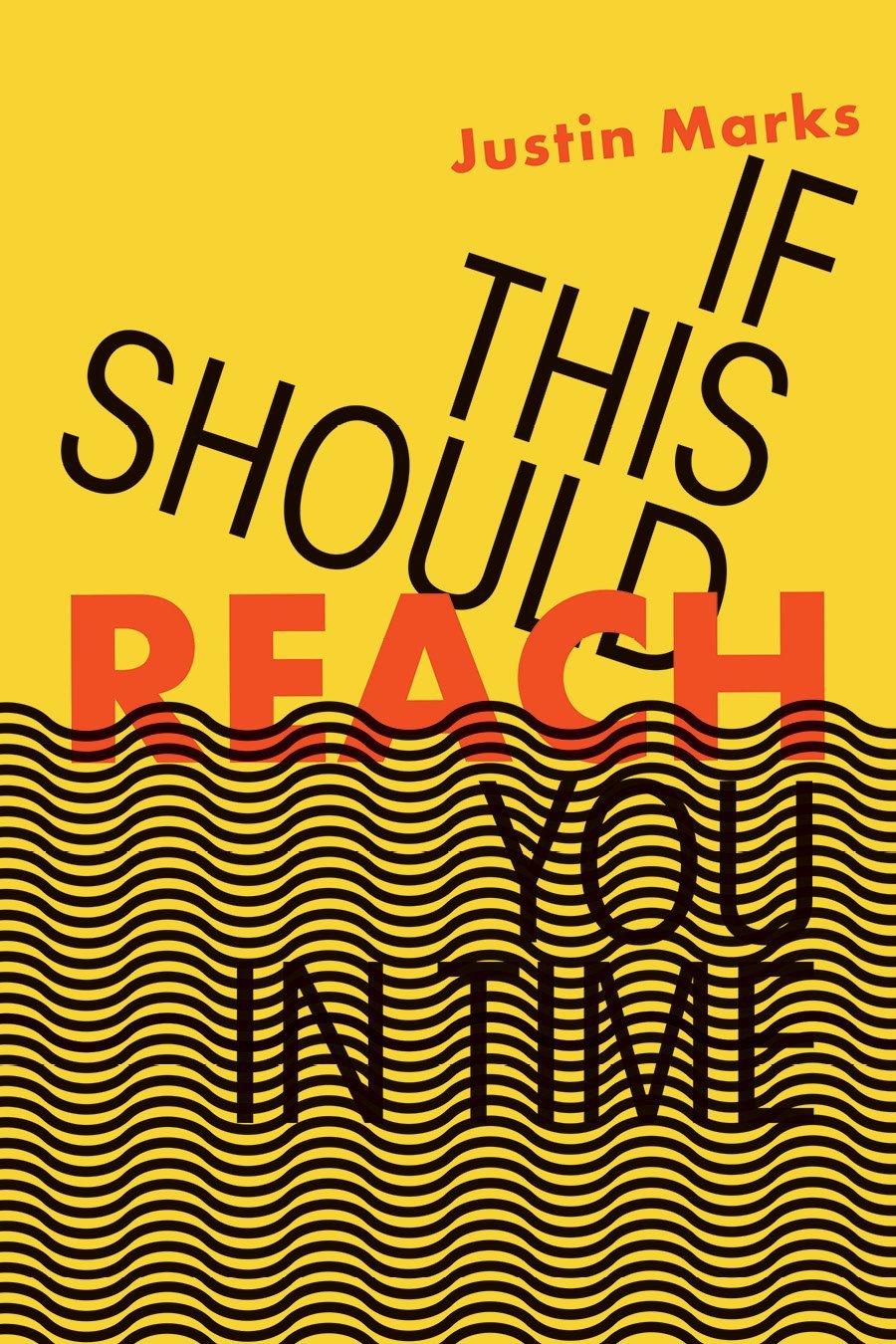If This Should Reach You in Time
If This Should Reach You in Time sounds the alarm of climate change and democratic collapse with tender lament and guarded hope from award-winning poet Justin Marks.
“There’s no way around / not being part / of the problem,” Marks writes in “Along for the Ride,” “The best case scenario / is long term disaster”.
In his fourth collection of poetry, Marks renders global threats as intimate and personal. As we turn inward, terror and sadness take hold. This is a book of crisis and dread, both human and spiritual.
Through these poems, we see what could be and what might have been. In the titular poem, Marks writes “…know / that we didn’t see / the disaster coming / That it wasn’t / imaginable, hadn’t / existed until, gradually / it was, and did / Or that we saw it / and refused to believe / Or saw it and thought / something or someone / else would save us.”
Published December 15, 2022
100 pages
By Justin Marks
PRAISE FOR JUSTIN’S PREVIOUS WORK
A Million in Prizes (New Issues Press, 2009)
“Salinger, O’Hara, Baudelaire all come to mind, but finally the voice and sensibility here, like the poems themselves, are utterly Justin Marks’ own.”
– Carl Phillips
“His poems are by turns philosophical, nostalgic, and subtly humorous, as he insistently disassembles the barriers between himself and his readers in a generous act of intimacy.”
– Shanna Compton
“Here is a rarely expressed self-awareness that accedes as little to words as it does to the pain of the condition itself.”
– Fanny Howe
On Happier Lawns (Poor Claudia, 2011)
“There’s a kind of poetry I think of as “man poetry,” which is not to say that all men write it or only men write it. “Man poetry” is a string of “I did this,” “I thought this,” “I felt this” statements, very matter-of-fact and declarative. Often done, rarely done well. On Happier Lawns by Justin Marks is in some ways a variation on this genre, but deeply interior and impressionistic, quiet but not abstract: the running inner monologue of an American man full of self-love and self-loathing. The poems are atypical of the genre in that they’re built of phrases rather than sentences, little chunks of language like clouds passing by, some images, some ideas. Like Nick Demske, the book is made of broken sonnets, in the sense that each poem contains 14 lines. In every other respect, they create and adhere to their own form. Marks writes lines that resonate and stick with me for years, occasionally returning to me, surfacing like a thought bubble: “I saw a femur once” … “The heart, a stencil” … “The body, a footnote” … “You’re going to miss me when you’re bored.” These poems make me laugh and at the same time induce pangs of vague nostalgia (“Something making me sad / but I don’t know what”), one of my favorite things that poetry (or any art) can do.”
– Elisa Gabbert
Read Justin Marks’ poems online at:
ABOUT JUSTIN MARKS
Justin Marks’ second book is You’re Going to Miss Me When You’re Bored (Barrelhouse Books, 2014). His first book is A Million in Prizes (New Issues, 2009), and his latest chapbooks are We Used to Have Parties (Dikembe Press, 2014) and Best Practices (Greying Ghost, 2013). Recent work has appeared in Denver Quarterly, Matter, similar:peaks, Leveler andInterrupture. He is a co-founder of Birds, LLC, an independent poetry press, and lives in Queens, NY with his wife and their twin son and daughter.


